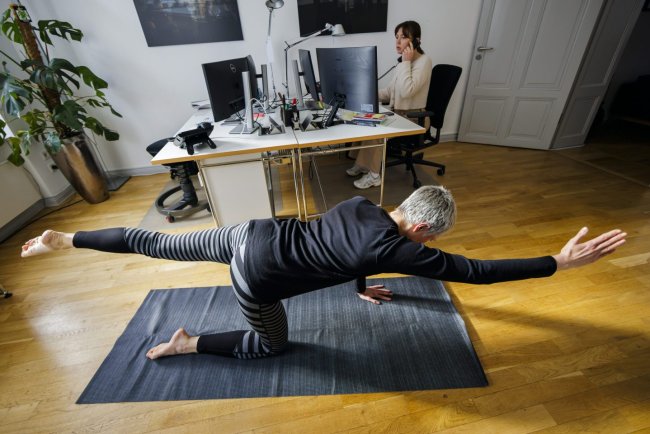Holistic Wellness Practices: A Comprehensive Guide
Unlock the secrets of Holistic Wellness Practices in this comprehensive guide. Discover 15 engaging topics covering everything from nutrition to mindfulness. Elevate your well-being with expert insights and practical tips.

Introduction
Welcome to my comprehensive guide on holistic wellness practices. Our modern lives can often leave us feeling drained, stressed and disconnected from our true selves. While taking care of responsibilities is important, it's also vital that we make time to nourish both our mental and physical health. Holistic practices aim to treat the whole person - body, mind and spirit - promoting wellness from the inside out.
In this post, I will give you an overview of several holistic approaches and techniques that can support your wellbeing. My goal is to present a variety of options so you can discover what resonates most with you. Remember, wellness is a journey that looks different for everyone. Don't hesitate to experiment until you find a regimen that feels nourishing yet sustainable.
Your wellbeing is worth investing in. So let's get started exploring ways to enhance it!
Holistic Wellness
The term "holistic" refers to considering something in its totality or entirety, rather than focusing on individual parts. Holistic wellness aims to optimize health on multiple levels by addressing the interconnected relationships between mind, body and spirit.
Rather than taking a symptom-focused approach, holistic practitioners strive to uncover any imbalances that may be at the root of issues. They recognize that our health and experiences are influenced not only by physical factors, but also by emotional, mental, environmental and even spiritual elements.
Some key principles of holistic wellness include:
- Focusing on prevention and wellness, rather than just treatment of disease or illness.
- Emphasizing self-care practices like proper nutrition, exercise, stress management and spiritual connection.
- Viewing the individual as a unique whole that is more than just the sum of their parts.
- Collaborating with the body's innate healing ability through lifestyle modifications and mind-body therapies.
- Acknowledging that we are all influenced by our external environment and relationships.
By adopting a holistic mindset and practices, you can work to optimize wellness on multiple levels and achieve greater balance, resilience and quality of life overall. Let's explore some specific holistic approaches to support your journey.
Holistic Nutrition
What we put into our bodies has an enormous impact on both physical and mental health. Holistic nutrition aims to fuel wellness through whole, nutrient-dense foods in balanced quantities. This often involves following an anti-inflammatory diet rich in:
- Fresh fruits and vegetables: These colorful plant foods provide antioxidants, fiber and phytonutrients to support immunity, digestion and detoxification.
- Quality proteins: Think wild-caught fish, grass-fed meat, free-range eggs and plant-based proteins like lentils, beans and nuts. Protein helps build and maintain muscle mass.
- Fermented and probiotic foods: Items like yogurt, kefir, kimchi and sauerkraut nourish the microbiome in our guts, which affects both physical and emotional wellbeing.
- Healthy fats: Coconut, olive oil, avocado and nuts/seeds provide energy and support hormone production. Fats are needed for cellular function and nutrient absorption.
- Whole grains: When possible, choose intact whole grains like oats, brown rice and quinoa which provide more fiber, vitamins and minerals than processed alternatives.
- Anti-inflammatory spices:Turmeric, ginger, garlic and cinnamon can help reduce inflammation throughout the body.
A holistic nutritionist or dietitian can guide you in tailoring a whole-foods diet plan specific to your individual needs and lifestyle. They may also recommend dietary supplementation when certain nutrients are lacking. The goal is to fuel your body with optimal nutrition to support wellness from the inside out.
Holistic Lifestyle Practices
Beyond diet, several regular self-care rituals can positively impact wellbeing on multiple levels holistically. Making room for practices like these in your routine can go a long way for both mental and physical health:
- Exercise
Any form of physical activity you enjoy, from walking to yoga to swimming, can reduce stress levels while improving fitness, sleep, digestion and brain function. Aim for 150 minutes or more per week. - Quality Sleep
Restorative sleep repairs the body and mind. Developing a relaxing bedtime routine and limiting screen time before bed can help you achieve 7-9 hours nightly. - Nature Connection
Spending time outside in green spaces or simply near plants has been shown to lower blood pressure, reduce anxiety and boost mood. Aim for 30 minutes daily. - Mindfulness Practices
Meditation, journaling and conscious breathing techniques help relieve stress, manage emotions and strengthen focus/awareness. Any daily practice, even just 10 minutes, can benefit wellbeing. - Social Connection
Positive relationships and community support strengthen resilience. Make quality time with loved ones a priority through communication, shared experiences and acts of service. - Self-Care & Relaxation
Practices like Epsom salt baths, massage, light yoga stretches or aromatherapy calm the nervous system and create space for joy. Schedule these refreshing activities weekly.
A holistic lifestyle honors both responsibilities and the importance of preventative self-care. Making space for lifestyle rituals, especially when life gets busy, will greatly support your wellness journey.

Holistic Family Wellness
Our environment and relationships greatly influence health and happiness. A holistic approach recognizes that families are interconnected systems. By cultivating wellness habits together, family bonds can deepen while raising child wellbeing. Some holistic family ideas include:
- Shared healthy meal prep and cooking to nourish relationships with food.
- Establishing technology-free dinner conversations for quality connection time.
- Doing outdoor activities together like nature walks, swimming or gardening for exercise and exploration.
- Trying meditation or yoga before bed for relaxation, stress-relief and better family sleep.
- Creating Saturday or Sunday rituals like reading, board games, art projects or music that foster bonding and mindfulness.
- Giving each other relaxing massages to practice nurturing touch and reduce physical tension.
- Observing monthly "self-care Saturdays" - parents take turns having solo relaxation time while the other cares for kids.
- Teaching children self-care skills like journaling feelings, gentle movement/stretching or managing emotions in healthy ways.
Promoting holistic family wellness habits can enhance relationships, model healthy behaviors for children and foster greater stability and resilience within the home. Nourishing our most important system provides immeasurable lifelong benefits.
Holistic Stress Management
While a certain amount of stress is normal and even useful at times, chronic stress takes an immense physical and emotional toll if left unmanaged. Holistic methods can help counteract damage from unhealthy cortisol levels through relaxation and resilience techniques. Some stress-relieving options include:
- Mindfulness meditation: Silence racing mind/thoughts and center awareness in the present moment. Just a few sessions weekly deliver immense benefits.
- Yoga/stretching: Gentle movement of poses combined with deep breathing lowers stress hormones and relieves muscular tension built up from daily activities.
- Progressive muscle relaxation: Consciously tense and release contracted muscle groups to relieve physical tension and induce relaxation.
- Guided imagery/visual meditation: Letting the mind drift to envision peaceful landscapes or scenarios has a soothing effect similar to meditation.
- Spending time in nature: The sight, sounds and feel of the natural environment have measurable positive effects on mood and stress levels.
- Expressive arts like journaling, drawing, singing or dancing: Creative outlets foster freedom of expression and emotion processing.
- Social support systems: Sharing feelings openly with trusted friends and professionals helps build resilience.
- Laughter/play: Have fun often! Laughter naturally elevates mood and lowers stress hormones. Play boosts creativity and spontaneity.
Managing stress levels holistically with mind, body and nature-centric techniques will enhance resilience and both mental and physical wellbeing significantly over the long run. Finding tools you enjoy can help develop stress coping skills for life.
Holistic Spiritual Connection
Your belief system, purpose and core values play a role in wellbeing. Many holistic practitioners acknowledge that spiritual/existential elements impact mental, emotional and even physical health. Nourishing a sense of meaning, purpose and higher connection can uplift wellness. Consider cultivating spirituality through:
- Mindfulness meditation focused on gratitude or compassion to cultivate presence and reduce stress/anxiety.
- Prayer, chanting, reciting affirmations or engaging with spiritual texts reflective of your individual beliefs.
- Volunteerism or acts of service as a way to express purpose and values through helping others.
- Community with others of shared beliefs through religious services/groups or secular mindfulness meetups.
- Nature as a manifestation of creation or a place to experience awe, wonder and smallness in the grand scheme.
- Expressive mediums like art, music or journaling as personal spiritual rituals that connect inner and outer realities.
- Acts of forgiveness for self/others as a way to reduce resentment, lift burdens and promote peace of mind.
While not necessary for everyone, nurturing spirituality allows some to develop a broader sense of meaning, resilience and purpose – all supportive of overall wellbeing when chosen freely. Explore options respectful to your individual path.
FAQs
What's Your Reaction?




















